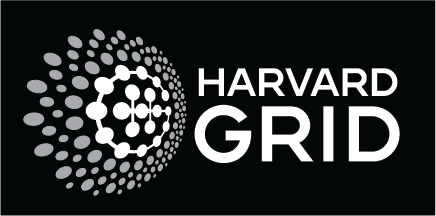
2024-2025 Harvard Grid Fellows
The Harvard Grid Fellowship represents an opportunity for inspired, engineering and science-oriented innovators to translate promising research or technologies while honing entrepreneurial skills during a year-long fellowship. Broadly, a researcher will apply with the intent of shaping Harvard research into a viable commercial platform to have global impact. The program is designed to surround fellows with a wide and deep village—market and technical experts, skills and knowledge sprints, mentorship, funding, other entrepreneurs, and more—that combined, creates an ecosystem to help innovators launch successful tough tech ventures that have outsized, positive impact on the world.

Dr. Keith Powell
Postdoctoral Fellow in Applied Physics Harvard John A. Paulson School of Engineering and Applied Sciences
Ph.D. Electrical Engineering, University of Sydney (2022)
B.E. Electrical and Information Engineering, University of Sydney (2015)
Project: Ushering in the next generation of high-speed, low power consumption integrated circuits: lithium tantalate photonics.
Integrated photonics is a nascent technology that integrates complex optical circuits and systems at chip scale. Much like how integrated electronics revolutionized the electronics industry over the last 60+ years, photonic circuits enable the next leap in circuity. Dr Keith Powell and the Loncar lab are developing lithium tantalate electro-optic modulators to deliver ultra-fast processing with significantly reduced power consumption and resistive/heat losses. During his year as a Grid Fellow, he will lead de-risking experimentation in the lab as well as build a commercial plan to develop, test, and pilot novel photonic circuits.
Keith is a postdoctoral fellow in Professor Marko Loncar’s group at Harvard John A. Paulson School of Engineering and Applied Sciences. Keith received this PhD and Bachelor’s in electrical engineering from the University of Sydney. During his PhD, he developed new fabrication processes for etching, bonding and annealing cubic silicon carbide (3C-SiC) on insulators. The work paved the way towards a world first demonstration of an electro-optic modulator in 3C-SiC operating a GHz frequencies.

Harvard Grid Fellowship Advisory Board Members
-
Mar Hershenson, Managing Partner, Pear VC
-
Russ Wilcox, Serial Founder and Operating Partner, Pillar VC
-
Andrew Payne, SEAS Projects Seed Investor and Mentor
-
Patrick Slade, Assistant Professor of Bioengineering at Harvard School of Engineering and Applied Sciences
-
Conor Walsh, Paul A. Maeder Professor of Engineering and Applied Sciences at Harvard School of Engineering and Applied Sciences
-
Marko Loncar, Tiantsai Lin Professor of Electrical Engineering at Harvard School of Engineering and Applied Sciences
-
David Hwang, Dean for Research at Harvard School of Engineering and Applied Sciences
-
Sam Liss, Executive Director, Strategic Partnerships, Office of Technology Development, Harvard University
Dr. Santiago Canete Riaza
Postdoctoral Research Fellow
Project: Restoring ambulation post-stroke: ankle exoskeleton to regain the ability and freedom to walk.
Over $56B is spent to treat stroke in the US annually and more than five million Americans live with impaired mobility post-stroke. Such impairment significantly affects both physical and mental wellbeing, impeding the recovery of quality-of-life and driving a downward spiral of other health consequences such as higher risk/exacerbation of chronic disease, depression, musculoskeletal diseases, and increased mortality. Dr. Santiago Canete and the Harvard Biodesign Lab and the Harvard Ability Lab are developing an ankle exoskeleton that anticipates patient intention and assists with plantar flexion and dorsiflexion, enhancing mobility.
Santi is a postdoctoral fellow jointly researching in Professor Conor Walsh’s and Professor Patrick Slade’s labs at Harvard John A. Paulson School of Engineering and Applied Sciences. Santiago received his PhD in Robotic Rehabilitation as well as a Master’s and Bachelor’s in Mechanical Engineering, all from Temple University.









